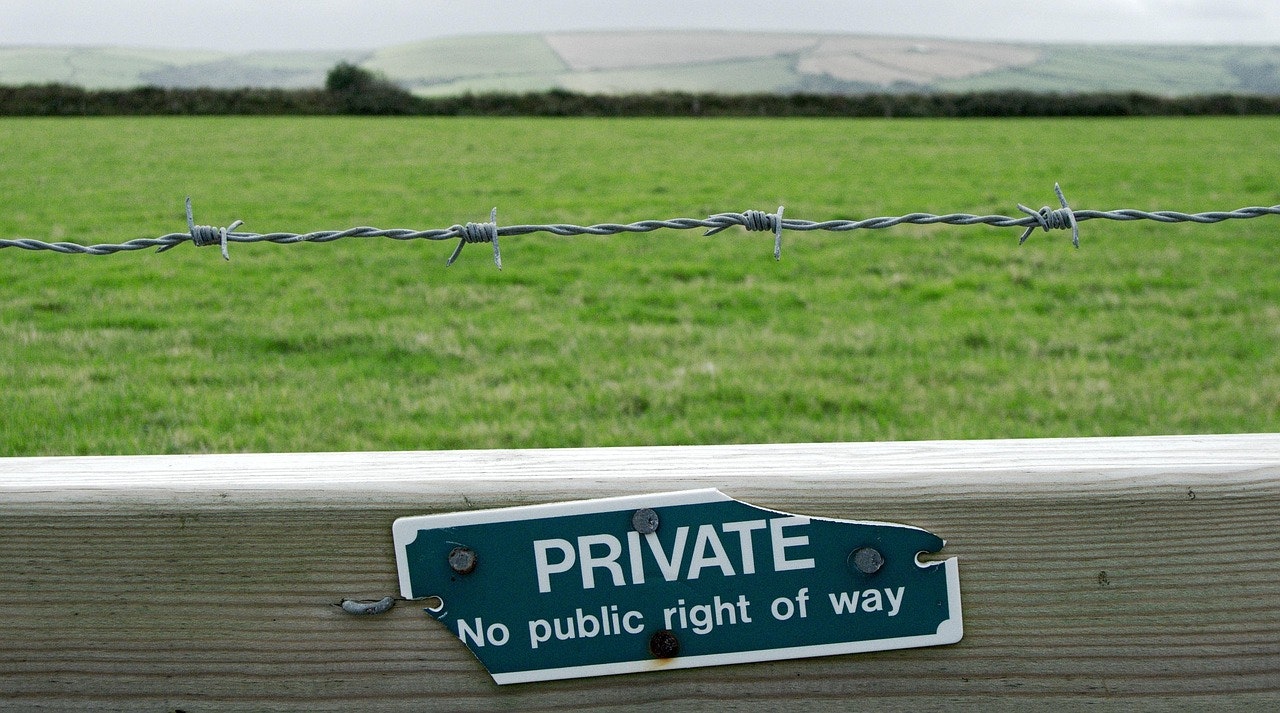Blog
Understanding Property Valuation in Eminent Domain: An Oklahoma Perspective
When the government exercises its right of eminent domain, property owners in Oklahoma face unique challenges and opportunities. Understanding how your property is valued can ensure you receive...
Read more
New Year, Fresh Start: Rebuilding Financial Confidence After Bankruptcy
As the new year unfolds, it's a natural time for reflection and setting resolutions—especially for those emerging from bankruptcy. Rebuilding after financial setbacks can feel daunting, but with...
Read more
Surviving the Holidays While in Bankruptcy: Tips for Oklahoma Residents
The holiday season can be particularly stressful for those navigating bankruptcy in Oklahoma. Balancing family obligations with financial constraints requires careful planning. Here’s how you can...
Read more
What Happens to Your Car in Bankruptcy? Understanding Vehicle Exemptions in Oklahoma
For many in Oklahoma, maintaining possession of their vehicle during bankruptcy is a major concern. While much focus is often placed on protecting homes, knowing how to keep your car is equally...
Read more
When the Government ‘Takes’ Without Asking: Understanding Inverse Condemnation in Oklahoma
Inverse condemnation is a critical, yet often overlooked, aspect of property law, especially in Oklahoma. Unlike eminent domain, where the government formally takes private property for public use,...
Read more
New law aims to allow Oklahoma property owners a real chance to get their property back
As a property owner's attorney, it's essential to inform clients about significant legislative changes that impact their property rights. A recent development in Oklahoma law, effective November 1,...
Read more
Beware of Bankruptcy Scams: Protecting Yourself from Fraudulent Creditors
Identifying Creditor ScamsWhen facing financial difficulties, the last thing anyone needs is to fall victim to a scam. Unfortunately, some creditors or those posing as creditors might take...
Read more
Demystifying the Means Test in Chapter 7 Bankruptcy
We understand that facing financial difficulties can be overwhelming and navigating the Chapter 7 bankruptcy process can be daunting. Legal terms like “means test” might make the journey feel even...
Read more
Will Bankruptcy Stop Foreclosure in Oklahoma?
Understanding Foreclosure in OklahomaForeclosure can be a daunting process for homeowners in Oklahoma facing financial difficulties. It's crucial to comprehend how foreclosure works in the state to...
Read more
Chapter 7 vs. Chapter 13 Bankruptcy in Oklahoma
Understanding Bankruptcy OptionsWhen faced with overwhelming debt, understanding your bankruptcy options can be crucial. Two of the most common bankruptcy chapters individuals consider are Chapter...
Read more
What to Know When Moving During Bankruptcy
Your Case Stays in the Original CourtFiling for bankruptcy in a federal court is based on your residency or asset location within the 180 days preceding the filing. If you're considering moving out...
Read more
Inverse Condemnation: Understanding Your Rights in Oklahoma
What is Inverse Condemnation?Inverse condemnation occurs when a government entity effectively takes private property without formal condemnation proceedings or just compensation. Unlike eminent...
Read more
Your Legal Rights as a Landowner in Oklahoma: What You Need to Know
Owning property in Oklahoma comes with a range of legal rights and protections, but landowners may face challenges such as boundary disputes, zoning conflicts, and government claims. Understanding...
Read more
Smart Strategies to Manage Debt This Summer
Summer vacations are the perfect time to escape, relax, and create unforgettable memories. But beneath the excitement lies the potential to overspend, which can lead to post-vacation debt. It's...
Read more
Understanding Eminent Domain in Oklahoma's Oil and Gas Sector
Introduction to Eminent DomainEminent domain allows the government or its agents to expropriate private property for public use, with payment of compensation. In Oklahoma, a state rich in natural...
Read more
How an Experienced Property Rights Attorney in Oklahoma City Can Help You
When it comes to property rights, land disputes, and eminent domain cases, having anexperienced property rights attorney in Oklahoma City can make all the difference. Whether you're facing a...
Read more
Protecting Property Rights in Oklahoma: What Landowners Should Know
Owning property in Oklahoma comes with a set of legal rights and responsibilities that every landowner should understand. From zoning laws to boundary disputes and eminent domain cases, knowing how...
Read more
What Is Eminent Domain in Oklahoma? Know Your Rights
Eminent domain is the power of the government to take private property for public use, provided they compensate the landowner fairly. In Oklahoma, this power is exercised by federal, state, and...
Read more
What to Expect from a Free Bankruptcy Consultation in Oklahoma City
Understanding the Process If you're considering filing for bankruptcy in Oklahoma City, afree bankruptcy consultation with a trusted law firm like Great Plains Legal Services is an excellent first...
Read more
Do You Need a Bankruptcy Attorney in Oklahoma City? Signs It’s Time to File
Facing financial hardship can be overwhelming, but knowing when to seek help is the first step toward relief. If you’re struggling with debt in Oklahoma City, consulting abankruptcy attorney in...
Read more
Debt Relief Options in Oklahoma City: Bankruptcy and Beyond
Financial struggles can be overwhelming, but you don’t have to face them alone. If you're burdened by debt in Oklahoma City, there are several relief options available to help you regain control of...
Read more
How to File Bankruptcy in Oklahoma: Step-by-Step Guide
Filing for bankruptcy can provide a fresh financial start for those struggling with overwhelming debt. However, the process can be complex and requires careful planning. This guide will walk you...
Read more
Understanding Bankruptcy in Oklahoma: A Guide to Chapter 7 and Chapter 13
When facing overwhelming debt, bankruptcy can offer a path to financial relief. In Oklahoma, individuals typically file for Chapter 7 bankruptcy or Chapter 13 bankruptcy, depending on their...
Read more
Proposed Bill to Enhance Transparency and Protect Landowners in OTA Projects
At Great Plains Legal Services, LLC, we believe in protecting private property rights and ensuring due process for landowners. A newly proposed bill, Senate Bill 80, aims to bring greater...
Read more
OTA Realigns Project Corridor Following Norman’s Infrastructure Decision: What This Means for Property Owners
The Oklahoma Turnpike Authority (OTA) recently announced a revised footprint for the East-West Connector project, a segment of the Oklahoma City Outer Loop, which will affect properties in multiple...
Read more
Strengthening Transparency: Oklahoma's Open Records Act and Proposed Legislative Reforms
Open records laws are vital for fostering transparency and accountability in government operations. These laws ensure that the public has access to important information about government activities...
Read more
Oklahoma Immigration Law on Hold: What You Need to Know
The recent injunction on Oklahoma's House Bill 4156 has significant implications for the state's approach to immigration enforcement. As this legislation is put on hold, it's essential to...
Read more
May 2024 Legal Clinic Dates
The Comanche Nation Legal Clinics are open to all tribal members in the month of May and are open from 10 AM to 2 PM, located at the Comanche Nation Tribal Court. You can speak to an attorney about...
Read more
Navigating the New USCIS Fee Adjustments: What You Need to Know
In an era where change is the only constant, the realm of immigration and naturalization in the United States is witnessing a significant shift. The U.S. Citizenship and Immigration Services (USCIS...
Read more
Understanding Eminent Domain and Its Impact on Property Owners
Eminent domain is a legal principle that allows certain entities to take private property for public use, provided the property owner is given "just compensation." This concept is rooted in the...
Read more
The Essential Guide to Bankruptcy and the Automatic Stay
Bankruptcy can be a daunting word for many, but it's often a crucial step towards financial recovery and stability. At Great Plains Legal Services, LLC, we understand the complexities and emotions...
Read more
March 2024 Legal Clinic Dates
The Comanche Nation Legal Clinics are open to all tribal members in the month of March and are open from 10 AM to 2 PM, located at the Comanche Nation Tribal Court. You can speak to an attorney...
Read more
View more
































